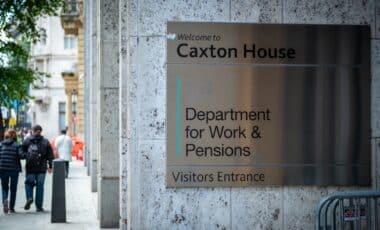The Labour government has confirmed it will not abolish the Department for Work and Pensions (DWP) two-child benefit cap, despite mounting pressure from anti-poverty groups and social welfare advocates.
The policy, which restricts financial support to the first two children in most households, has become a flashpoint in the national debate over welfare reform and inequality.
According to a report by GB News, Labour ministers are standing firm on the cap, citing its popularity among certain voter groups. The decision has triggered widespread concern from leading charities, who warn that child poverty in the UK could soon reach record levels.
Policy Will Remain as Party Prioritizes Perceived Fairness
The two-child limit, introduced in 2017, restricts child tax credit and Universal Credit payments to the first two children in most households. The policy continues to enjoy political support within government ranks. A senior government source stated:
If they still think we’re going to scrap the cap then they’re listening to the wrong people
Underscoring the administration’s current stance. Another official commented that the cap remains,
Popular with key voters, who see it as a matter of fairness,
Suggesting political calculations are influencing the decision to preserve the measure.
Charities Warn of Worsening Poverty Indicators
A coalition of organisations, including Child Poverty Action Group, Citizens Advice, and Save the Children UK, has issued a joint letter to Prime Minister Keir Starmer, urging him to take direct action to reverse the policy.
The letter argues that the cap “pushes more and more children into poverty every day” and singles out its disproportionate effect on low-income families.
According to their analysis, the cap has already contributed to placing
300,000 children into deep poverty at a time when their parent’s capacity to work is limited.
If unchanged, they project child poverty in the UK will rise from 4.5 million to 4.8 million by 2029, a level they describe as the highest since records began.
Call for Leadership and Structural Investment
The charities argue that
Ensuring that fewer children are in poverty at the end of this parliamentary term than at the start will require a direct investment in family incomes via the social security system.
They assert that the two-child policy is not
Compatible with the ambition to raise living standards.
The letter appeals directly to the Prime Minister for personal engagement, stating that only an “ambitious and properly resourced strategy” can deliver meaningful change. It warns that there is
No road to sustainable national growth unless child poverty reduces at scale and at pace.
Despite these warnings, government sources remain unmoved. One official stated clearly : “We’re simply not going to find a way to do that,” in reference to scrapping the cap, suggesting a firm resolve to maintain the policy line throughout the parliamentary term.
While charities acknowledge strong leadership from departmental heads and thorough engagement with the Child Poverty Unit, they stress that as the spending review concludes and the child poverty strategy nears publication, the window for meaningful change is closing fast.









